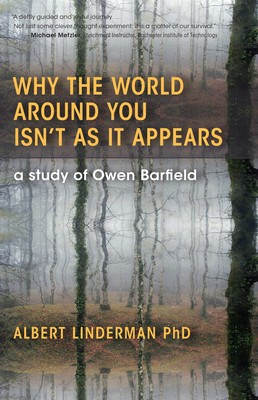
- We will send in 10–14 business days.
- Author: Albert Linderman
- Publisher: LINDISFARNE BOOKS
- Year: 2012
- Pages: 169
- ISBN-10: 1584201215
- ISBN-13: 9781584201212
- Format: 14 x 21.6 x 1.1 cm, minkšti viršeliai
- Language: English
- SAVE -10% with code: EXTRA
Reviews
Description
"Imagination is more important than knowledge.
For knowledge is limited, whereas imagination
embraces the entire world, stimulating progress,
giving birth to evolution." --Albert Einstein
Empirical knowledge is only one side of "reality." Empirical knowledge is all about the "outside," the surfaces of objects, the matter we can see and touch. It does not speak to the "insides," the unconscious inner reality, subjectivity, feelings, and meaning that humans contribute to the world of objects we experience in our day-to-day lives. The New Enlightenment looks at the inside from that place phenomenologist Edmund Husserl termed "the great world of the interiority of consciousness."
Using the insights of Owen Barfield (1898-1997) as his starting point, Linderman investigates the nature of consciousness, the Enlightenment, scientific thinking, belief, and the power of imagination.
This book is for those who appreciate the insights of alternative thinkers, but feel at the mercy of an engineer neighbor, an amateur "science buff" friend, or skeptical relatives. They confidently present clear, reasoned, scientific arguments to discredit, or, at least, bring considerable doubt to the veracity of the claims of the alternative thinkers you find compelling. For you to explain why you find some alternative writers so helpful, you need to be able to articulate succinctly the theory of knowledge that undergirds them. Likely, you struggle to do so now. You should find help in this book.
C O N T E N T S:
Introduction
1. Moving beyond "The Belief"
2. The Trojan Horse of Science
3. The Evolution of Consciousness
4. How Do We Know Anything: The Activity of Thinking
5. Consciousness and Language
6. Thinking, Reason, and Matter
7. Imagination
8. Knowledge of Qualities
Bibliography
Index
EXTRA 10 % discount with code: EXTRA
The promotion ends in 22d.02:32:15
The discount code is valid when purchasing from 10 €. Discounts do not stack.
- Author: Albert Linderman
- Publisher: LINDISFARNE BOOKS
- Year: 2012
- Pages: 169
- ISBN-10: 1584201215
- ISBN-13: 9781584201212
- Format: 14 x 21.6 x 1.1 cm, minkšti viršeliai
- Language: English English
"Imagination is more important than knowledge.
For knowledge is limited, whereas imagination
embraces the entire world, stimulating progress,
giving birth to evolution." --Albert Einstein
Empirical knowledge is only one side of "reality." Empirical knowledge is all about the "outside," the surfaces of objects, the matter we can see and touch. It does not speak to the "insides," the unconscious inner reality, subjectivity, feelings, and meaning that humans contribute to the world of objects we experience in our day-to-day lives. The New Enlightenment looks at the inside from that place phenomenologist Edmund Husserl termed "the great world of the interiority of consciousness."
Using the insights of Owen Barfield (1898-1997) as his starting point, Linderman investigates the nature of consciousness, the Enlightenment, scientific thinking, belief, and the power of imagination.
This book is for those who appreciate the insights of alternative thinkers, but feel at the mercy of an engineer neighbor, an amateur "science buff" friend, or skeptical relatives. They confidently present clear, reasoned, scientific arguments to discredit, or, at least, bring considerable doubt to the veracity of the claims of the alternative thinkers you find compelling. For you to explain why you find some alternative writers so helpful, you need to be able to articulate succinctly the theory of knowledge that undergirds them. Likely, you struggle to do so now. You should find help in this book.
C O N T E N T S:
Introduction
1. Moving beyond "The Belief"
2. The Trojan Horse of Science
3. The Evolution of Consciousness
4. How Do We Know Anything: The Activity of Thinking
5. Consciousness and Language
6. Thinking, Reason, and Matter
7. Imagination
8. Knowledge of Qualities
Bibliography
Index


Reviews